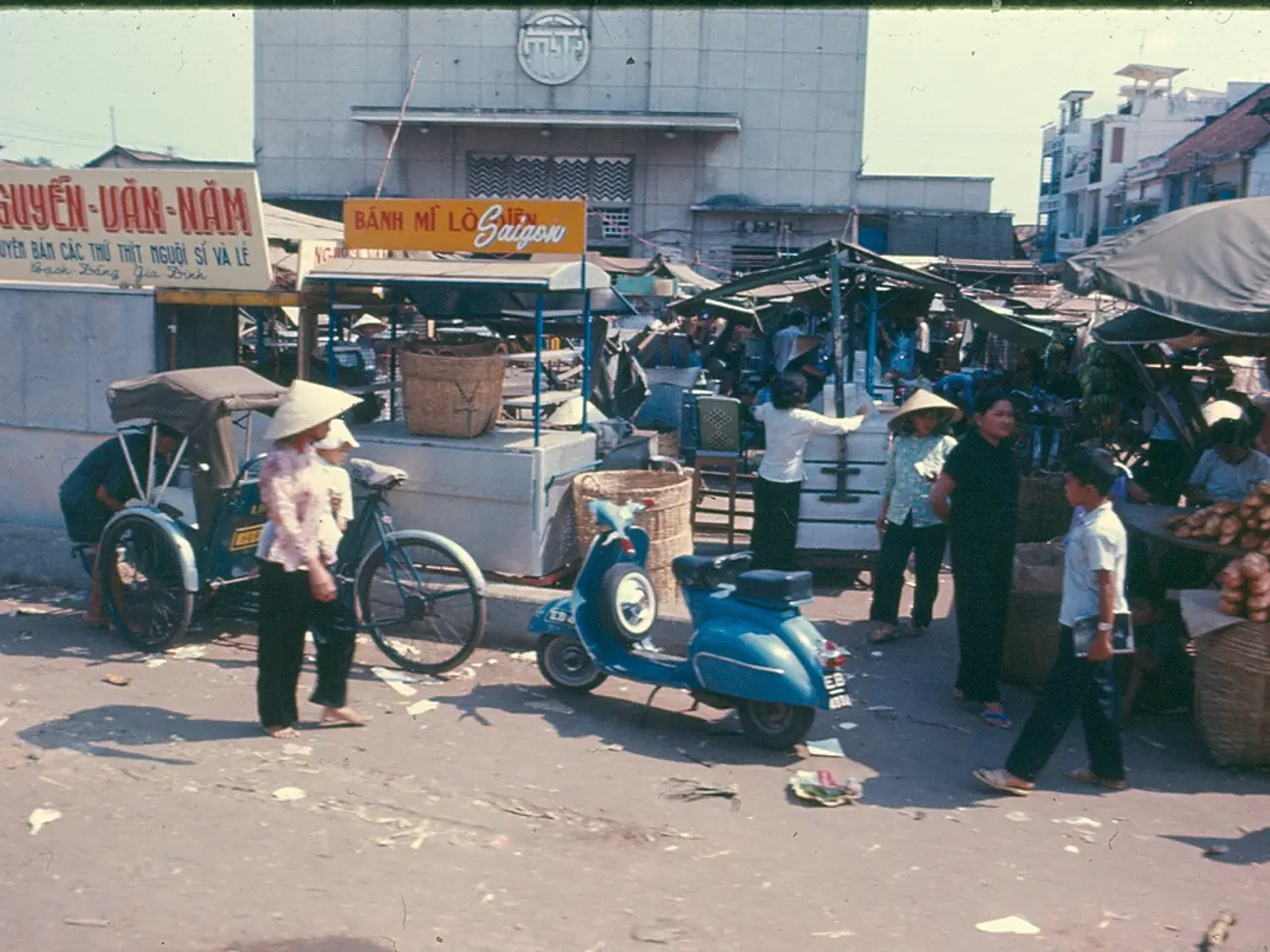Unveiling the Identities: Who is the Prominent Dealer of Island Plastics, Mr. Riziki Ali?
=================================================================
In the heart of Pemba, Tanzania, a 56-year-old recycler named Mr. Rizik is leading a revolutionary charge against plastic pollution. His plastic shredding enterprise, supported by the IslandPlas Project, is making waves in the region, transforming waste into value and empowering local communities.
The IslandPlas Project, backed by The Coca Cola Foundation, aims to promote a transition to a circular plastics economy. This initiative's commitment to building a circular economy in Zanzibar aligns perfectly with Mr. Rizik's mission.
Each day, Mr. Rizik and his team collect up to one ton of plastic waste from across Pemba's regions. They sort, shred, and store the plastic in bags categorised by different plastic types. This meticulous process ensures that plastic material always finds value beyond its initially intended use, contributing to a more sustainable future.
Mr. Rizik's enterprise currently employs eight full-time youth workers and contracts twenty women sorters. The maximum monthly salary among the youth employees is 81 USD, and women sorters are paid 12 USD per ton of plastic cleaned and sorted. Through his business, Mr. Rizik not only diverts plastic away from the ocean but also contributes to the economic empowerment of women and youth in his community.
Despite facing challenges, including the absence of key machines and the unavailability of spare parts in Tanzania, Mr. Rizik's determination remains unwavering. The Chake Chake Municipality has pledged to provide him with space at the new government-constructed dumpsite, eliminating his current rental cost of 38 USD per month.
Recently, Mr. Rizik's facility was used as an innovation-demonstration site during this year's World Environment Day. Officials from the Zanzibar Environment Management Authority, the Ministry of Blue Economy and Fisheries, and other stakeholders collectively endorsed his initiative as a high-potential local solution to plastic pollution.
To scale Mr. Rizik's plastic recycling enterprise for greater environmental, social, and economic impact, key strategies include expanding partnerships with local and international organisations, integrating technology for monitoring and efficiency, accessing funding programs that support circular economy ventures, and enhancing community engagement and education on plastic waste management.
Engaging with regional innovation and environmental programs such as the Elevate Blue Innovation Program can provide technical and financial support to scale operations and increase impact in the economy and environment. Leveraging platforms like Tanzania’s GeoNode for spatial data can improve mapping of environmentally sensitive areas, guiding sustainable sourcing and waste collection efforts.
Forming alliances with stakeholders advocating for comprehensive plastic life cycle management can open opportunities for policy support and funding aligned with Africa-wide plastic treaty demands. Given the increasing awareness and urgency highlighted by authorities such as the Norwegian Embassy on the dangers of plastic pollution to food chains and human health, increasing community outreach and educational programs around recycling can boost social impact and motivate broader participation.
Adopting circular economy principles by turning recycled plastics into durable products, as exemplified by similar enterprises like SHARUBU, could increase the enterprise’s economic resilience and environmental benefits via reduced deforestation and pollution. Scaling production and diversifying recycled plastic products could stimulate job creation and support local livelihoods while tackling plastic waste.
In summary, Mr. Rizik’s enterprise would benefit greatly from multi-level collaboration—linking local waste management efforts with regional innovation programs, policy advocacy, data-driven practices, and community engagement—to amplify environmental sustainability, social inclusion, and economic viability in Pemba and beyond.
- With technology integration, Mr. Rizik's plastic recycling enterprise could employ data and cloud computing solutions for efficient monitoring and administration, aligning with the principles of sustainable living and promoting a circular economy.
- As environmental-science and health-and-wellness receive increasing attention, it's crucial to educate the community on the importance of recycling for the preservation of both human health and our climate-change affected planet.
- Home-and-garden enthusiasts can contribute to the cause by adopting eco-friendly practices at home and advocating for sustainable-living products, thus reducing plastic waste and supporting Mr. Rizik's initiative.
- Fitness-and-exercise aficionados can boost their social impact by taking part in local clean-up events around Pemba, while promoting environmental stewardship as a vital part of their lifestyle.
- The success story of Mr. Rizik's plastic recycling enterprise can serve as an example for other technology-driven innovation in the broader fields of lifestyle, home, and garden, inspiring the creation of meaningful businesses that promote a more sustainable future.




